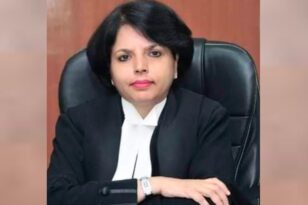Supreme Court Grants Bail to Chief Minister Arvind Kejriwal in Liquor Policy Case; Justice Ujjal Bhuyan Criticizes CBI’s Justification For Arrest
(Judicial Quest News Network)
New Delhi 13, September, 2024
In today’s ruling, Justice Ujjal Bhuyan of the Supreme Court granted bail to Delhi Chief Minister Arvind Kejriwal in connection with the ongoing liquor policy case. Justice Bhuyan criticized the Central Bureau of Investigation (CBI) for failing to adequately justify Kejriwal’s arrest based on his allegedly evasive replies during questioning.
Justice Bhuyan emphasized a fundamental constitutional principle: the right of an accused to remain silent. This right, enshrined in Article 20(3) of the Constitution, means that individuals cannot be compelled to testify against themselves. The judge underscored that cooperation with an investigation does not obligate an accused to respond in a manner preferred by the investigating agency. Therefore, the argument that Kejriwal’s arrest was justified due to his evasive answers was deemed flawed.
The bench, which also included Justice Suryakant, granted bail to Kejriwal while expressing reservations about the CBI’s basis for arrest and continued detention. Justice Bhuyan highlighted that simply being evasive does not constitute a valid reason for arrest or detention, noting that cooperation with an investigation does not require answering questions in a specific way dictated by the prosecution.
Justice Bhuyan further critiqued the CBI’s approach, arguing that their justification for arresting Kejriwal and detaining him was untenable. The judge stressed that the principles of justice dictate that arrest should not become a tool for harassment and that continued detention should be a last resort. Additionally, Justice Bhuyan expressed concerns over previous Supreme Court-imposed conditions, which barred Kejriwal from entering the Delhi Secretariat and signing official files.
While Justice Bhuyan and Justice Suryakant were in agreement on granting bail, Justice Kant upheld the legality of the CBI’s arrest, reflecting a divergence of opinions within the bench. The ruling reiterates that the development of jurisprudence necessitates that arrest and detention should not be used excessively, aligning with the principle that jail is an exception rather than the rule.
The respondent is definitely wrong when it says that because the appellant was evasive in his reply, because he was not cooperating with the investigation, therefore, he was rightly arrested and now should be continued in detention. It cannot be the proposition that only when an accused answer the questions put to him by the investigation agency in the manner in which the investigating agency would like the accused to answer, would mean that the accused is cooperating with the
investigation. Further, the respondent cannot justify arrest and
continued detention citing evasive reply.
We should not forget the cardinal principle under Article 20(3) of the Constitution of India that no person accused of an offence shall be compelled to be a witness against himself. This Court has held that such a protection is available to a person accused of an offence not merely with respect to the evidence that may be given in the court in the course of the trial, but is also available to the accused at a previous stage if an
accusation has been made against him which might in the normal course result in his prosecution. Thus, the protection is available to a person against whom a formal accusation has been made, though the actual trial may not have commenced and if such an accusation relates to the commission of an offence which in the normal course may result in prosecution. An accused has the right to remain silent; he cannot be compelled to make inculpatory statements against himself. No adverse
inference can be drawn from the silence of the accused. If this is the position, then the very grounds given for arrest of the appellant would be wholly untenable. On such grounds, it would be a travesty of justice to keep the appellant in further detention in the CBI case, more so, when he has already been granted bail on the same set of allegations under the more stringent provisions of PMLA.




